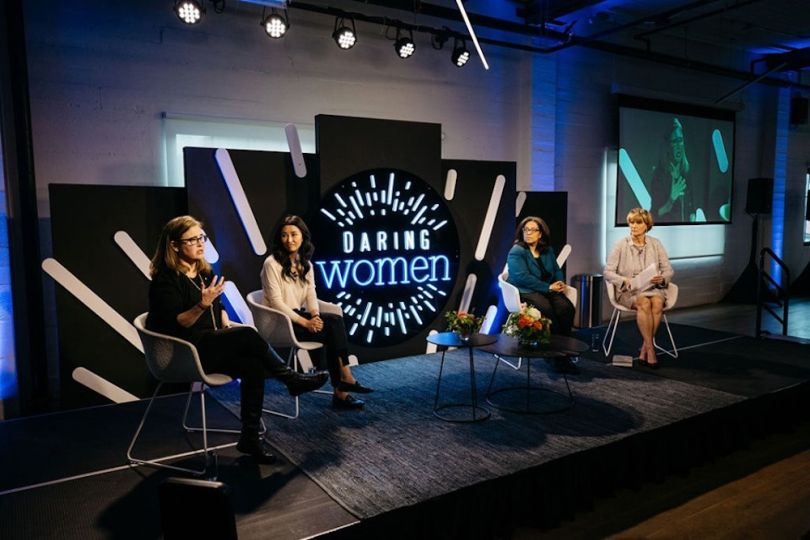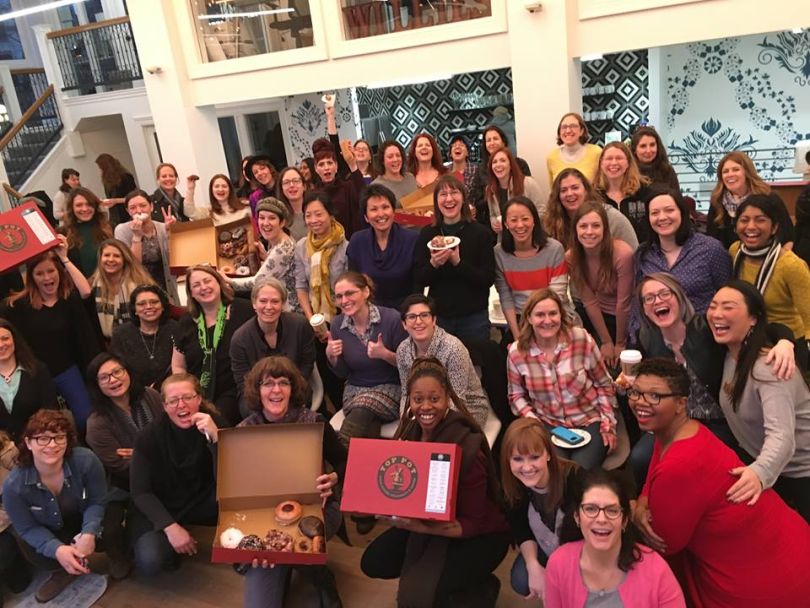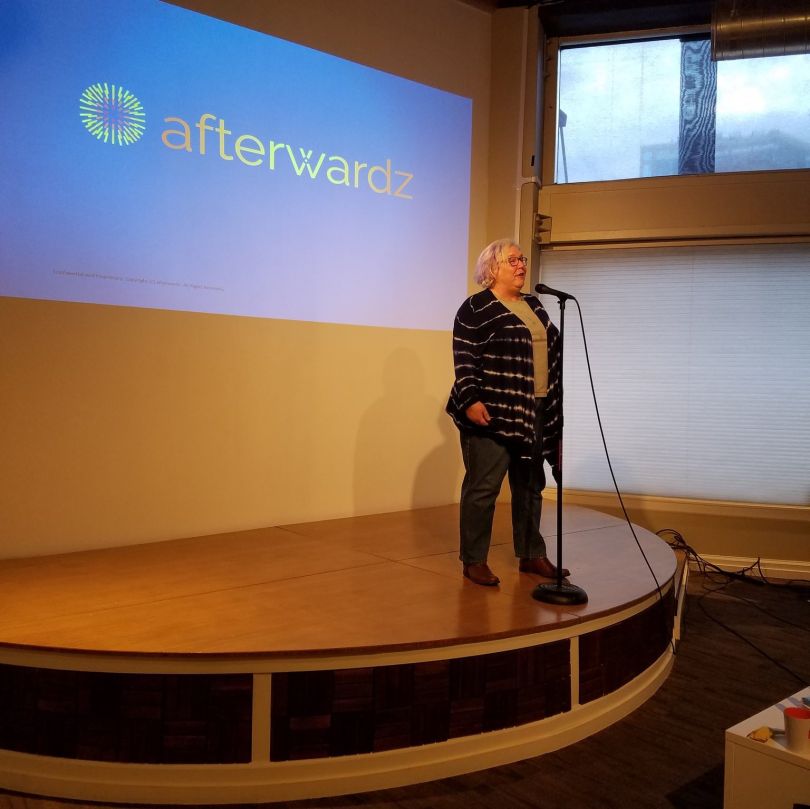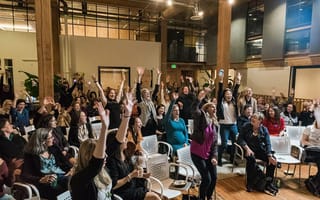When Megan McNally set out to launch the first digital streaming network dedicated entirely to women’s sports, she thought she knew what it would take to turn the idea into a business. She partnered with the world’s second-largest video streaming company to build a mobile app, amassed an enormous library of sports documentaries and started working to develop original programming centered on women athletes.
But when McNally met with investors and other business leaders, mostly men, she found that many were more interested in grilling her on obscure sports references than in talking about her growing business. To her, the signal was that she had no business running a sports startup.
“They were questions that were meant to tell me that this was not my space, that I should get back in my lane.”
“They were not questions based out of genuine curiosity, or questions that you ask when you’re looking for common ground with somebody,” McNally said. “They were questions that were meant to tell me that this was not my space, that I should get back into my lane.”
About four years ago, these experiences came to a head during Seattle Startup Week — an event meant to celebrate the diversity of young businesses within the region. McNally found herself seeking out other women founders for comfort, and wrote a now-infamous blog post inviting the women she met there to a meeting later on.
In early 2017, about 20 women business owners crowded into a small office in Pioneer Square to talk over the trials and tribulations of being a woman founder in the male-dominated industry of tech. After that first meeting, attendees decided to meet again the next month — and then again and again and again. FBomb Breakfast Club was born, and the rowdy support group now counts more than 2,700 female founders as members — many of whom aren’t afraid to drop an occasional f-bomb when discussing their business.
The Seattle group meets on the first Friday every month to talk over business challenges, seek advice and network. FBomb also hosts occasional panels, covering topics like where women of color stand in tech, how to develop an exit strategy for your startup, and refining your venture capital pitch. The goal is to build a network of women industry leaders who can act as mentors and advocates and open doors for one another.
“Women in business are often going to male attorneys and male investors and counting on men to be the gatekeepers and open doors for them,” McNally said. “Entrepreneurs who have ideas they’re trying to bring out into the world should be able to find people to support them who look like them.”

How women can build a business
FBomb’s members come from a variety of industries, but many of them are involved in Seattle’s growing tech scene.
Jill Angelo, founder of Genneve — a Seattle startup that runs a telemedicine service for women experiencing menopause and has collected $4.5 million in venture funding — is a member of the group. Leslie Pearson — who appeared on ABC’s “Shark Tank” to pitch her art display product, GoodHangups — acts as a mentor to other members. Amy Nelson, founder of The Riveter — a national network of coworking spaces built by women for everyone, and which has received $37.5 million in venture investment — got her start in the club and has since sponsored several of the group’s events.
In addition to mentorship and sponsorship opportunities, FBomb members connect one another to angel investors, review one another's business models, attend each other’s speaking engagements, help members overcome “imposter syndrome,” and much more.
McNally said surrounding yourself with a power squad can be one of the most important parts in turning an idea into a viable business. But that’s not the only thing. Wannabe founders must dream big, think strategically and prioritize ruthlessly, she said.
"We talk about how to build businesses and how to help each other."
While FBomb was born out of the frustrations of working within a male-dominated industry, McNally said men rarely come up in the group’s discussions: “We talk about how to build businesses and how to help each other,” she said.

‘Capital is not flowing to female founders’
The group’s work building women-founded businesses is perhaps most visible during its annual “Pitches 2 Bitches” event, where five women founders present their startup ideas and receive input on how to refine their business models and pitches. In early October, Andrea Brice took first for her startup afterwardz: a web app that models the cost of retirement in various communities.

Brice received a “small cash prize,” legal and branding packages, membership to a coworking space and other assorted goods, McNally said. She also received complimentary access to the GeekWire Summit, a technology conference that normally warrants a $700 ticket.
These resources would be valuable to any early-stage startup, but they can make an even bigger difference for women-founded companies.
Women are notoriously underrepresented at technology conferences, for instance — a survey last year found that 70 percent of women who spoke as experts on a conference panel reported being the “lone woman” among the participants, and that there was a four to one ratio of men to women speakers. Women-founded companies also receive substantially less funding — women-founded companies have received just 3 percent of all venture funding so far this year, according to the latest data from PitchBook — which means they’re less likely to have a budget for those kinds of resources.
“There's still this enormous gap between the amazing ideas being born by women and the resources that they need.”
“The data still shows that, quite significantly, capital is not flowing to female founders,” McNally said. “So even though we have this robust innovation economy, and we have a lots of women in business and doing innovative things, there's still this enormous gap between the amazing ideas being born by women and the resources that they need to bring those to scale.”
Beyond Facebook and Slack: A new community platform
FBomb is preparing to move to a new online community platform sometime in the first quarter of 2020, so as to expand its offerings and accommodate the group’s growth. Those located outside Seattle currently communicate via private Facebook group and Slack — FBomb now counts women across six continents and 25 states as members.
“We're getting ready to pilot some things that make it easier for women to participate in other communities and make it easier for them to grow an FBomb community wherever they are,” McNally said.
She said the group is currently testing a handful of platforms similar to Slack, which would allow women, after they log in to the site, to create profiles and discuss topics in online forums, message boards, affinity groups and more. CMX, a San Francisco-based community manager organization, is helping the group find its new platform.
“The most important thing for us is connecting women in communities outside of Seattle.”
“The most important thing for us is connecting women in communities outside of Seattle,” McNally said. “It’s a whole lot harder to find community if you’re in a smaller town, or some place where you don’t have a critical mass.”




